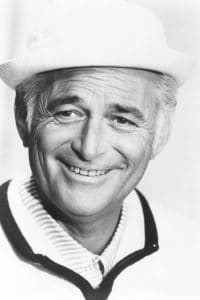
- Entertainment legend Norman Lear died on December 5 at the age of 101.
- He became best known as the writer and producer behind multiple popular sitcoms, including ‘All in the Family,’ ‘Sanford and Son,’ ‘One Day at a Time,’ ‘The Jeffersons,’ ‘Maude,’ and Good Times.
- The Golden Globes honored him with the Carol Burnett Award recognizing seven decades of work on television.
Norman Lear, award-winning sitcom writer and producer, died at the age of 101. He passed on December 5 at his home in Los Angeles. News of his passing came from a statement issued by his family on his website. The entertainment world now mourns a man who shaped TV shows as we know them, influenced the industry right up until his death, and will continue to do so even years after his passing.
Lear can be credited with some of the biggest sitcoms on American television, including All in the Family, Sanford and Son, One Day at a Time, The Jeffersons, Maude, and Good Times. He also oversaw the 2017 remake of One Day at a Time. In 2020, Lear and Act III Productions shared plans to produce Who’s the Boss?
Remembering the legacy of Norman Lear

Where did a life such as Norman Lear’s begin? He called New Haven, Connecticut home after his parents had him there on July 27, 1922. They had both come from families traveling to America seeking safety and prosperity. They would also greatly influence Lear – even during his father’s absence following his arrest. While fans of Lear’s work might not see them directly, Jeanette and Hyman Lear endure as inspirations behind Edith and Archie Bunker.
RELATED: A Retrospective Look Back On Norman Lear’s Nostalgic And Memorable Shows
Advocacy and determination became major themes for Lear, from the persecution his ancestors fled from abroad, to the snide hate he heard on the radio, and led to his decision to join the United States Army during the throes of World War II. He got his first taste for communications skills thanks to working as a radio operator, which had him chronicling the grim combat he witnessed. The experience stuck, and Lear pursued a career in public relations. Back in civilian life, Lear embarked on a trek across the country to California.

So began a climb to the top. Through a mix of networking and offering his skills at every possible opportunity, Norman Lear found himself recruited to salvage CBS’s sitcom Honestly, Celeste! Work here proved short, but networks like NBC bounced him over to new projects writing significant portions of their shows.
Rewards for determination

Persistence yields more rewards than surrender ever will. Even the greatest faced rejection in their time. A drama school told a young Lucille Ball she’d never amount to anything. Likewise, Norman Lear pitched two sitcom pilots that were met with disinterest. He might have given up after yet another rejection, but he persisted, and that third pilot was accepted and became All in the Family.
This officially opened the door for Lear to flex his sitcom writing muscles and he didn’t stop until his passing. Harkening to the hurdles he witnessed – and endured – growing up, he always worked to sprinkle in timely challenges faced by Americans. It leaked into his political and social activism as well, motivating him to found an educational program spotlighting social projects around America. He also supported research into the power behind mixing the arts, business, and societal dilemmas.

While diluting his political activism over the years, Lear kept busy with plenty of TV programs planned. For his efforts, he was slated to receive the Carol Burnett Award, celebrating decades of television work, on February 28th during the 78th Golden Globes ceremony.
“Norman lived a life of curiosity, tenacity, and empathy,” said Lear’s family. “He deeply loved our country and spent a lifetime helping to preserve its founding ideals of justice and equality for all. He began his career in the earliest days of live television and discovered a passion for writing about the real lives of Americans, not a glossy ideal. At first, his ideas were met with closed doors and misunderstanding. However, he stuck to his conviction that the ‘foolishness of the human condition’ made great television, and eventually he was heard.”
In over ten decades of living, Lear had much to be proud of and worked continually on new projects. But now the industry mourns the loss of a true titan who gave us some of our fondest laughs.
